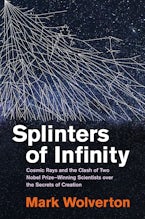Finkelstein justly presents du Bois-Reymond as the nineteenth century's 'most important forgotten intellectual' (p. xv), and he excels in linking scientific endeavors with cultural and political contexts.
Isis. Journal of the History of Science Society
One of the intellectual children of Johannes Müller, along with Hermann von Helmholtz, Emil du Bois-Reymond pioneered electrophysiology, advanced a materialistic analysis of life, and rose to prominence as a political force in German science. He became an advocate of Darwinian theory, yet cautioned his colleagues: there were limitations to scientific knowledge, especially explanations of consciousness. Gabriel Finkelstein, utilizing many untapped archival sources, has reconstructed the accomplishments of du Bois-Reymond in fine and fluid detail. He places this extraordinary scientist and cultural arbiter within the context of the blistering disputes among German mandarins. Finkelstein has composed a model intellectual and cultural history of the last half of the nineteenth century.
Robert J. Richards, Morris Fishbein Distinguished Service Professor, University of Chicago
Gabriel Finkelstein presents us with a beautifully written and thoroughly researched scholarly biography; a comprehensive account of the life, times, and impact of the great neurophysiologist Emil du Bois-Reymond. It fills a major gap in the historiography of late-nineteenth century biomedical science. The chapter on Goethe and Darwin shows the broad scope not only of Du Bois-Reymond's intellectual abilities, but also Finkelstein's.
Nicolaas Rupke
In writing this insightful, thoroughly researched biography of Emil du Bois-Reymond, Gabriel Finkelstein has done an immense service not just to historians of science but to anyone interested in nineteenth-century European culture. A first-rate historian and engaging storyteller, Finkelstein recreates the world of a brilliant, witty intellectual whose innovative experiments made modern neurophysiology possible. Finkelstein takes the reader through every aspect of du Bois-Reymond's science: his self-designed instruments, his political battles, and his obstreperous frogs. In doing so, Finkelstein shows how politics (both national and academic) and the arts permeate science, and how science drives culture as an intellectual endeavor.
Laura Otis, Emory University
In this wonderful biography of Emil du Bois-Reymond, among the most important if least heralded scientists of the nineteenth century, Gabriel Finkelstein evokes a past when science and public life went hand in hand and one man could create a scientific field. Bold, carefully etched, full of telling details rendered against a rich contextual background, Finkelstein's beautifully written book makes compelling reading.
Helmut Walser Smith, Martha Rivers Ingram Professor of History, Vanderbilt University

Honorable Mention, 2013 American Publishers Award for Professional and Scholarly Excellence (PROSE Award) in the History of Science, Medicine, and Technology, presented by the Professional and Scholarly Publishing Division of the Association of American P
Named by the American Association for the Advancement of Science's journal Science Books and Films as a Best Book of 2014 in the "Medical Science, Psychiatry" section











